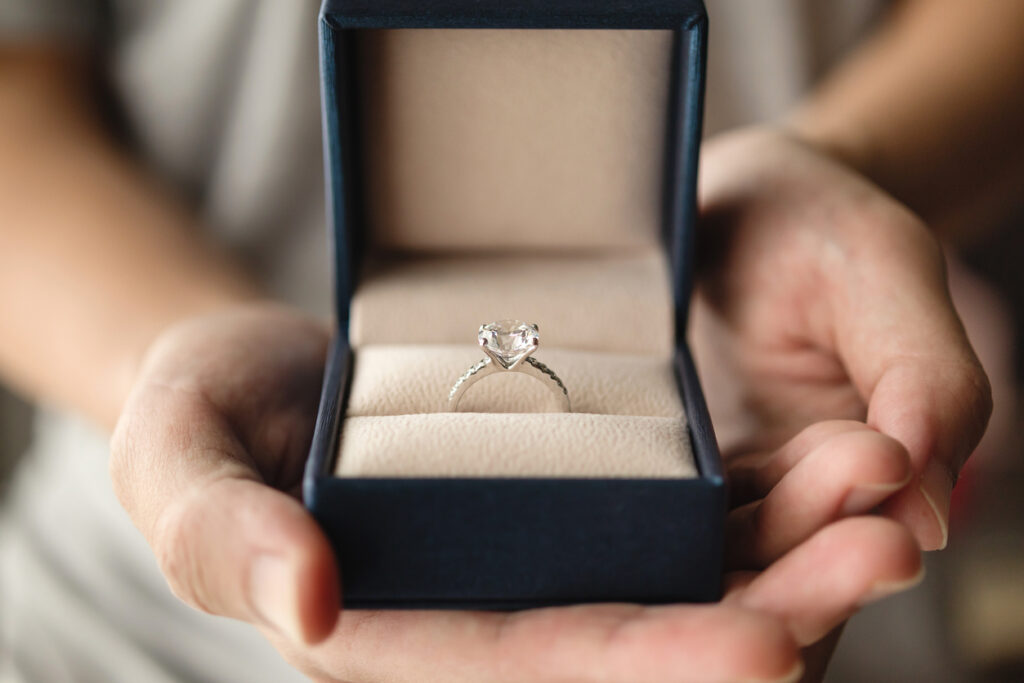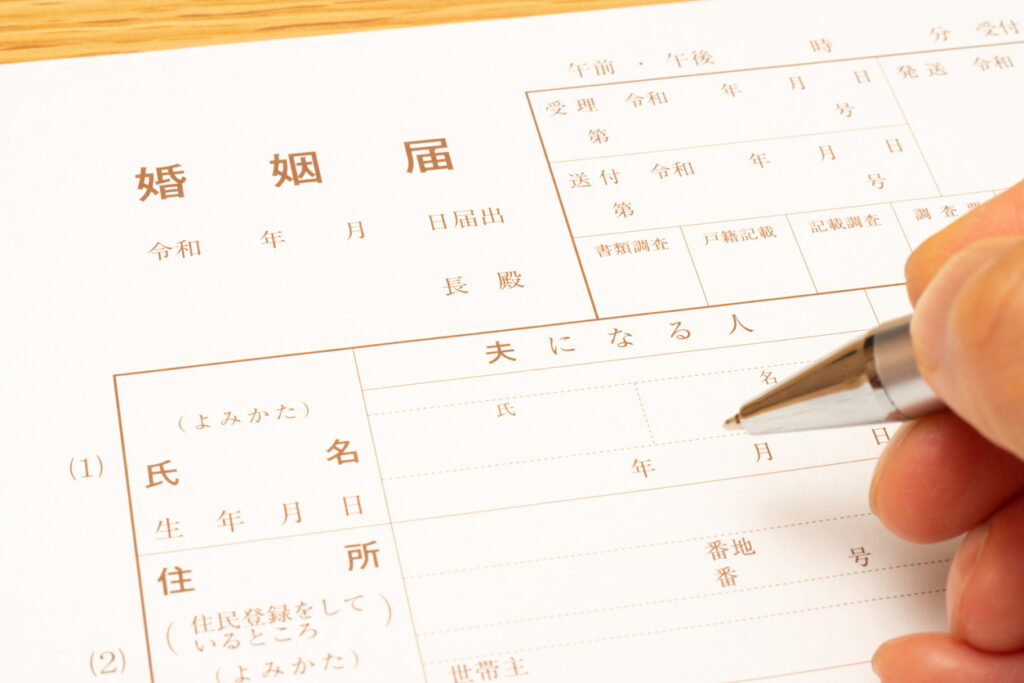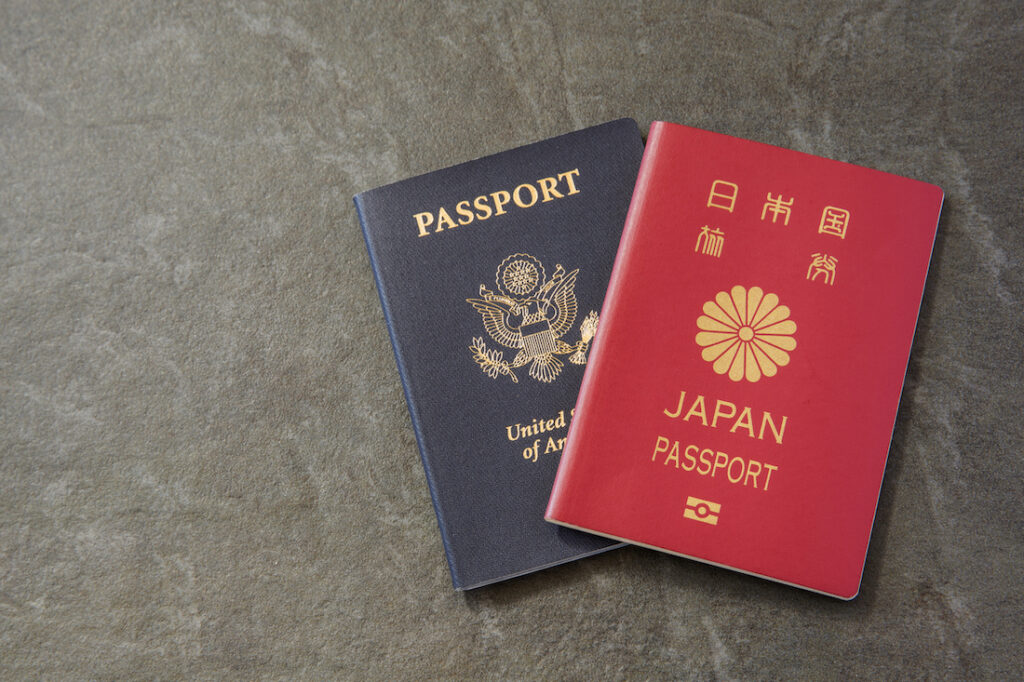Marriage in Japan: A Savvy Tokyo Guide
When It's Time to Tie the Knot
Your step-by-step guide to getting married in Japan.
Congratulations! You and your partner are engaged and ready to take that next big step. Whether you’re a fluent Japanese speaker or can’t tell your migi (右 right) from your hidari (左 left), this Savvy Tokyo guide to marriage in Japan will help you handle the legal/paperwork side of getting married here with ease.
So You’re Ready To Get Married in Japan
 © Photo by iStock: Kwangmoozaa
© Photo by iStock: KwangmoozaaHold it. There are some basic points you and your partner must meet before you should even consider getting married. These might sound like obvious points, but according to a civil servant friend, they’ve seen people miss these vital rules before.
First things first. According to the Japanese Civil Code and the amendments made as of April 2022, men and women aged 18 and over are legally allowed to marry. Basically put, if you can legally get married in your home country, you can get married in Japan. You can marry someone else from your native country, someone from another country, or a Japanese national.
Only in the following circumstances can a marriage be refused:
- If you’re already married, it’s illegal in most countries to marry another person.
- While contentious, a recently divorced woman cannot remarry within six months of said divorce. (Unless she gives birth to a child conceived before the divorce.)
- The Japanese Civil Code forbids the marriage of persons who are related by blood, adoption or through other marriages.
- If you are residing illegally in Japan, you won’t be able to obtain the necessary documents to marry, and any attempt to do so may result in your deportation.
Who is getting married?
 © Photo by iStock: visualspace
© Photo by iStock: visualspaceMarriages between two foreign nationals in Japan tend to be either civil, religious or both. However, only holding a religious ceremony without registering the marriage with a city/ward office does not mean you are legally married in Japan.
Whether you are marrying a Japanese national or another foreign national in Japan, the same procedure and paperwork is required.
What are your options?
Technically speaking, if you want to marry in Japan, you only need to meet the legal requirements and complete the necessary paperwork. Unlike getting married at city halls overseas, where you can have a formal officiant or even say your vows to one another, in Japan, you hand your paperwork to a civil servant, and ta-da, you’re now legally married.
Your only options for anything else involve the ceremonial aspect, which will be covered in a later article.
What do you need to get married?
 © Photo by iStock: yuruphoto
© Photo by iStock: yuruphotoYou’ll need to get a lot of paperwork together in order to get married, and every document must be translated into Japanese if it isn’t already in Japanese. You can expect to spend some time and possibly money in order to get everything properly translated.
In order to save yourself any trouble or unexpected extra expenses, it’s a good idea to visit your ward office with your partner and consult with the staff there about what you need in order to get married, just in case. For example, you may need to submit additional proof of citizenship if you have dual citizenship but are in Japan on a visa from one country or a birth certificate if there are questions as to your nationality/eligibility to marry.
Remember that the date you submit your paperwork becomes your marriage date regardless of when/if you have a wedding ceremony, so if you have a specific anniversary in mind, you’ll need to plan your paperwork accordingly.
From either partner:
- An application for your marriage registration (婚姻届, konintodoke)
- Money/revenue stamps to pay the registration/associated fees (may vary)
Foreign partners must provide the following:
- A valid passport/visa (a residence card or My Number card may be accepted)
- Your birth certificate (an official copy in lieu of the original may be accepted depending on your nationality)
- An affidavit of Competency to Marry (provided for a fee by your embassy/consulate)
- If you’re divorced, a copy of any/all divorce certificates/judgments
Japanese partner must provide:
- An official copy of their Family Register (戸籍謄本, kosekitohon) not older than 1 month
You will also need two people to act as witnesses on the paperwork. They must be over the age of 20 but do not have to be Japanese citizens. Marriages must be registered at the nearest ward office where the couple will live.
When you apply for your marriage registration, you should also request a Certificate of Acceptance of Notification of Marriage (婚姻受理証明書, koninjyurishomeisho) from your ward office, as it proves your marriage is legal.
Once that has all been accepted and approved, you’re legally married in Japan. Following that, you may need to fill out additional paperwork with your embassy/consulate to register your marriage abroad as well.
How do I change my name?
 © Photo by iStock: golfcphoto
© Photo by iStock: golfcphotoJapanese courts do not have the authority to change the names of any non-Japanese citizens. Therefore, when two foreign nationals get married in Japan, they do not have to change their names as long as they reside there. That being said, consulting with the relevant embassy/consulate and following their name change procedures will be required if they do wish to. You’ll also need to take the changed documentation to your nearest Japanese immigration office in order to update your residence card/visa status.
Unfortunately, in Japan, civil law requires Japanese couples to share the same last name. Although either the husband’s or wife’s name can be chosen as the shared name, at this point in time, more than 95 percent of couples take the husband’s last name. For Japanese people marrying foreign nationals, however, their name can remain the same as prior to marriage.
A foreign national marrying a Japanese person cannot legally adopt their Japanese spouse’s name while registering their marriage. The only option in that regard is to have the married name (First Name, Japanese Spouse’s Surname) registered as a legal alias (通称名; 通名, tsushomei; tsumei). This does not count as a legal name change. However, your married name can now be used in daily life to sign up for services and so on.
Suppose you intend to change your name, alongside any changes to your visa status. In that case, you must fill out a “Notification of change in name, date of birth, sex and nationality/region on residence card” form and provide the necessary documentation to your nearest immigration office within two weeks of the marriage.
What about my visa status?
 © Photo by iStock: Yobab
© Photo by iStock: YobabChanging your marital status does not automatically mean your residence status has also changed. If you want to change to a spousal visa/residence status, you must apply for and submit the necessary documents to your nearest immigration office. Either way, you must update your marital status with Immigration within two weeks of becoming married.
Depending on your current visa, you may be able to apply for this change while still living in Japan. Or you may need to return to your home country and apply there. The whole process can take anywhere from one to six months, depending on the circumstances and country or countries involved (especially if you have dual citizenship).
As with any visa, if there are any discrepancies or issues with your paperwork, your application may not be approved despite being legally married to your spouse. Ideally, you should speak to an immigration lawyer prior to getting married if you have any concerns about your visa status.
Likewise, being married in Japan does not mean your Japanese partner automatically has visa status in your home country either. In fact, your marriage may not be legally recognized outside Japan if you do not take the necessary steps to register it. You will need to consult with your embassy in order to learn more about your marital status and any potential visa procedures required for your spouse should you decide to travel/move back to your home country.
In Japan, you must provide extensive immigration documentation to prove your relationship with your Japanese spouse is legitimate and that you are qualified for a spousal visa.
From either partner:
- Chat/texting history
- Photos from dates/family events/vacations, love letters, anything that proves the couple is in a loving relationship and has been for some time
- A revenue stamp (price may vary and should be confirmed on the Immigration website before being purchased at the post office).
Foreign partners must provide the following:
- A valid passport
- An Application for Extension of Period of Stay (在留期間更新許可申請書 zairyu kikan koshinkyoka shinseisho)
- An ID photo from within the last 3 months (4cm x 3cm, plain white background, your face clearly visible, with your name on the back)
- A Tax Declaration Certificate (課税証明書, kazeishomesho)
- A Certificate of Tax Payment (納税証明書, nozeishomeisho)
- Proof of employment (在職証明書, zaishokushomeisho)
Japanese partner must provide:
- An official copy of their Family Register (戸籍謄本, kosekitohon)
- A copy of the Immigration Questionnaire (質問票, shitsumonhyo)
- A Letter of Guarantee (身元保証書, mimotohoshosho)
- A Certificate of Residence (住民票, jyuminhyo)
- A Tax Declaration Certificate (課税証明書, kazeishomesho)
- A Certificate of Tax Payment (納税証明書, nozeishomeisho)
- Proof of employment (在職証明書, zaishokushomeisho)
The certificates of residence and tax certificates are available from your ward office and cost anywhere from ¥200-500 per copy. If you haven’t been paying your taxes, chances are you will be unable to change your visa status and may face penalties.
Same-Sex Marriage/Partnerships in Japan
 © Photo by iStock: Pekic
© Photo by iStock: PekicUnfortunately, Japan has made little progress in terms of what they offer for those in LGBTQ+ relationships. The constitution still prohibits same-sex marriage and, despite debates, is an issue that doesn’t get the attention it deserves.
Same-sex marriage may still be a long way off but in recent years more municipalities within Japan are offering same-sex civil partnerships. At the time of writing, 26 municipalities offer symbolic partnerships. For the full list of municipalities, please check out this link.
If you are in an LGBTQ+ relationship and want to enter a civil partnership, you should visit your local ward office and see what, if any, extra steps are required. Please keep in mind however that, in legal terms, these partnerships do not offer the same benefits as a marriage. Having a certificate may grant you some assistance in certain matters, but this depends on the location and circumstances. For more information on marriage equality in Japan, please check out the website Marriage for All.















